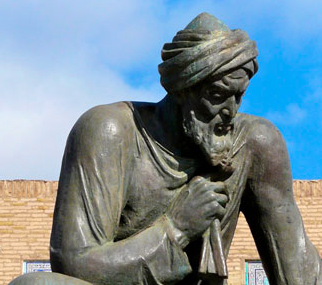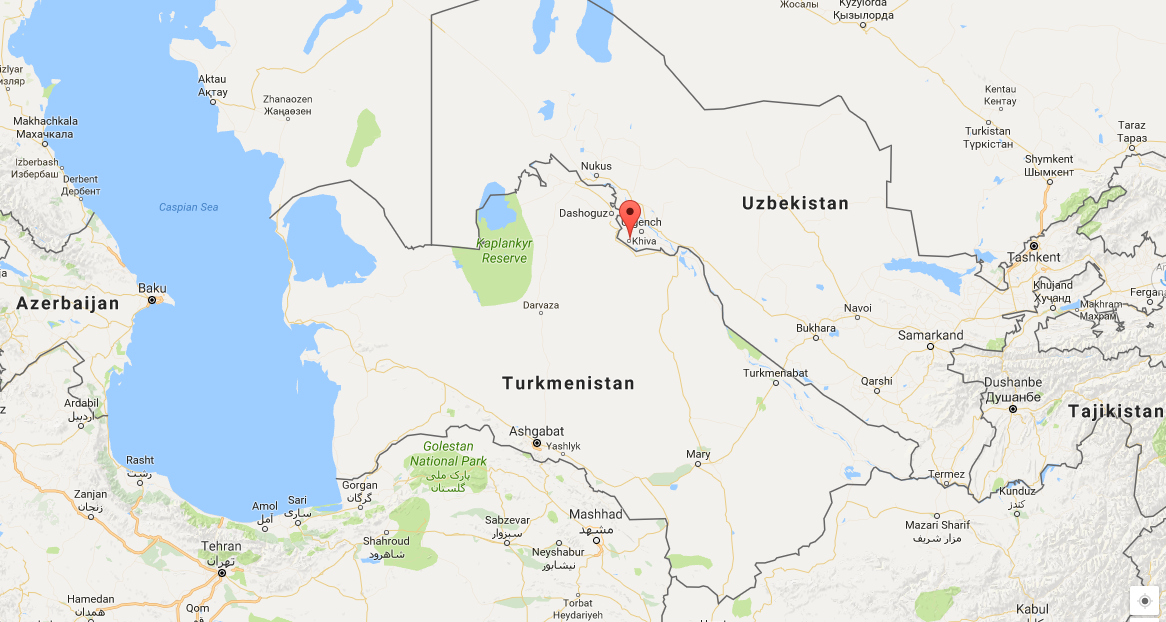Algorithms: Threat or Menace?
Language Log 2016-10-30
 Muhammad ibn Musa al-Khwarizmi (see also here)
Muhammad ibn Musa al-Khwarizmi (see also here)
… was a Persian mathematician, astronomer, and geographer during the Abbasid Caliphate, a scholar in the House of Wisdom in Baghdad.
In the 12th century, Latin translations of his work on the Indian numerals introduced the decimal positional number system to the Western world. Al-Khwārizmī's The Compendious Book on Calculation by Completion and Balancing presented the first systematic solution of linear and quadratic equations in Arabic. He is often considered one of the fathers of algebra. He revised Ptolemy's Geography and wrote on astronomy and astrology.
Some words reflect the importance of al-Khwārizmī's contributions to mathematics. "Algebra" is derived from al-jabr, one of the two operations he used to solve quadratic equations. Algorism and algorithm stem from Algoritmi, the Latin form of his name.
Al-Khwarizmi flourished in the early 9th century A.D., but algorithms — step-by-step procedures for solving problems by well-defined rules — have been around for a lot longer, e.g. Euclid's algorithm for computing the greatest common divisor of two numbers.
I bring this up because of a lexical change in progress, whereby algorithm is apparently being redefined to mean something like "one of the mysterious and scary AI programs that are invading our lives". At least that's the meaning implicit in the BBC World Service program "Algorithms: Should We Worry?" —
Artificial intelligence is taking over everything from medical diagnosis to legal due process. Rob Young asks if the lack of transparency and risk of error are causes for concern.
Plus, Iran! Also, Arabic!
The start of the program:
Your browser does not support the audio element.
Of course there are algorithms in everything a computer does, including what we think of as mundane activities like sensing a key press, or rendering an image, or playing a sound. In fact the algorithms that perform such familiar and everyday tasks are complex and sophisticated. But the word algorithm apparently strikes people as a fancy one, that should therefore be reserved for programs that do edgier and less ordinary things:
Your browser does not support the audio element.
The program deals with some serious issues, focused on an exchange with Cathy O'Neil, who wrote Weapons of Math Destruction: How Big Data Increases Inequality and Threatens Democracy. You can listen to the rest of the program(at least until the BBC takes it down in accordance with their weird 30-day limit), or better, buy and read O'Neil's book.
But this is Language Log, not Big Data Fairness and Transparency Log, so having noted how the word algorithm is being exoticized, let's return briefly to the word's origins and previous development.
According to the OED's entry for algorithm,
Al-Ḵwārizmī's Arabic surname, which literally means ‘the native of Khorezm’, is < Arabic al the + Ḵwārizm (also Ḵwārazm ), the Arabic name of the town of Khorezm (now Khiva in Uzbekistan) + -ī -i suffix2.
Based on its Wikipedia article, Khiva looks like it might be interesting to visit.
The OED's etymological note includes this catalogue of sources and variants
post-classical Latin algorismus Arabic numerical notation (from 12th cent. in British sources; also in continental sources; also as augorismus (a1274, a1349 in British sources), algarismus (first half of the 15th cent. in British sources), used as common noun of the personal name Algorismus , Algoarismus , Alghoarismus , Alchoarismus (all from 12th cent. in British and continental sources) < Arabic al-Ḵwārizmī (also al-Ḵwārazmī , al-Ḵuwārizmī , al-Ḵuwārazmī ), surname of the mathematician Abū Jaʿfar Muḥammad b. Mūsā (fl. 800–47).
The historical senses of the word include "The Arabic system of numbering, characterized by a zero", as in:
1658 E. Phillips New World Eng. Words Algorithme, the art of reckoning by Cyphers.
And also, I was surprised to learn, "calculus", as in
1721 J. Wilson Let. 21 Jan. in I. Newton Corr. (1977) VII. 126 It does not appear from the Commercium that you were acquainted with the true Characteristics and Algorithm of Fluxions or Differences, before their Master. a1739 N. Saunderson Elements Algebra (1740) I. p. xv, The War that was lately waged among Mathematicians..concerning the Algorithm or Principle of Fluxions.
The (pre-BBC) modern meaning, "A procedure or set of rules used in calculation and problem-solving; a precisely defined set of mathematical or logical operations for the performance of a particular task", seems to have arisen in the early 19th century:
1811 Eclectic Rev. July 587 It [sc. the calculus of variations] wants a new algorithm, a compendious method by which the theorems may be established without ambiguity and circumlocution. 1819 Philos. Trans. (Royal Soc.) 109 319, I should prefer applying the limiting formulæ in the usual way; passing however from column to column..of the results, at first by means of the neat algorithm..and afterwards by differencing. 1836 O. Gregory Hutton's Course Math. (ed. 11) I. 231 Instead of trying other criteria, apply Horner's algorithm for reducing the equation by 1, 11 …then [etc.]. 1902 Trans. Amer. Math. Soc. 3 290 It may be determined by Euclid's algorithm for finding the greatest common divisor.
